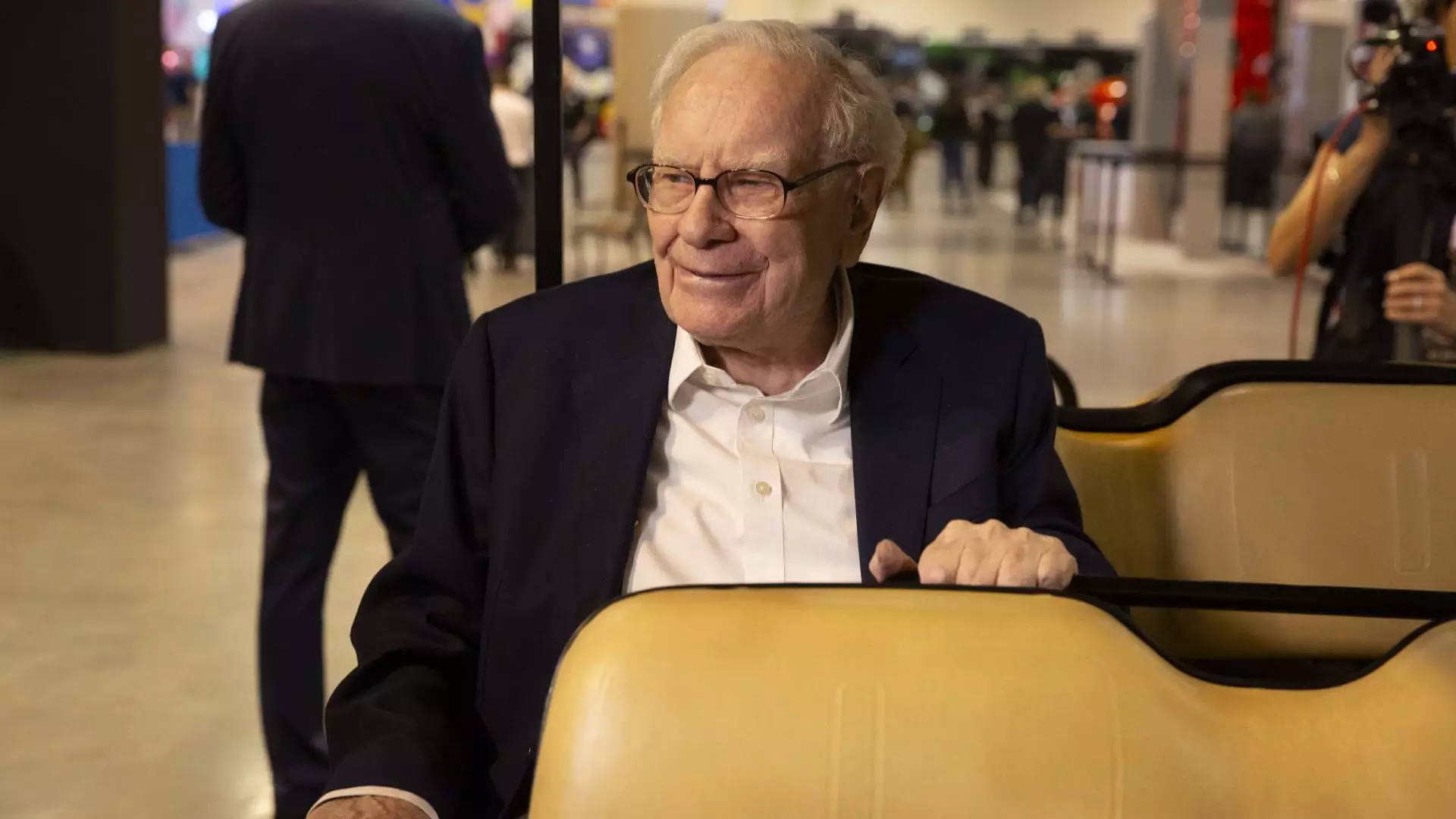Berkshire Hathaway has once again captured the market’s attention following a remarkable increase in its operating earnings. The conglomerate, helmed by the venerable Warren Buffett, reported an astounding 71% jump in operating profit for the fourth quarter, soaring to $14.5 billion. This impressive figure is a testament to the resilience and efficacy of Berkshire’s diversified business model, particularly buoyed by its insurance underwriting segment, which saw profits surge a striking 302% to $3.4 billion year-over-year. The significant uptick in operating earnings, however, is contrasted by a stark decline in investment gains, which dropped dramatically from $29.1 billion to $5.2 billion, raising questions about the overall health of the company’s investment strategy.
Despite the strong operating performance, shareholders looking for indications on Berkshire’s management of its vast cash reserves might leave the latest earnings report feeling somewhat unsatisfied. As the company navigates an environment rife with high valuations, Buffett has implemented a strategy that prioritizes selling equities over purchasing new ones, marking the ninth consecutive quarter of net sales. This tactic has pushed Berkshire’s cash reserves to a staggering $334.2 billion, up from $325.2 billion just three months prior. While this stock sell-off has bolstered the company’s liquidity, investors are left pondering the rationale behind this approach and whether it represents a missed opportunity to reinvest in the market.
Buffett, often referred to as the “Oracle of Omaha,” has been transparent in addressing his decisions regarding cash accumulation. In his annual letter to shareholders, he reassured them that his significant cash holdings do not signal a departure from his long-held philosophy of investing in equities. He defended his cash position by asserting that, despite appearances, “the great majority of your money remains in equities.” The hesitance to deploy capital could be perceived as caution amidst current market valuations, leading Buffett to declare that “often, nothing looks compelling.” This highlights a fundamental aspect of Buffett’s investing style: his unwavering discipline in ensuring that every investment made is based upon sound fundamentals and attractive valuations.
In the conversation surrounding Berkshire’s strategic direction, the mention of Buffett’s successor, Greg Abek, is noteworthy. Buffett has expressed confidence in Abek’s abilities to identify potential equity opportunities, drawing a parallel to his late confidant, Charlie Munger. This endorsement is significant, as it not only positions Abek as a capable heir to Buffett’s investment philosophy but also reassures investors that Berkshire Hathaway’s legacy is set to continue even beyond its iconic leader. However, the conglomerate’s ongoing suspension of share repurchases—zero buybacks reported in both the fourth quarter and the current first quarter—has incited a mixture of skepticism and hope among shareholders regarding the company’s future moves.
Despite the mixed signals regarding cash management and buying strategies, Berkshire Hathaway has performed commendably in recent times, enjoying a robust 25.5% increase in valuation over the past year, outperforming the S&P 500—its strongest performance since 2021. This upward trend has continued into the early months of 2025, with shares appreciating by more than 5%. While this growth instills confidence in Buffett’s ability to navigate through market volatility, it juxtaposes shareholder frustration about the apparent inactivity with their cash reserves.
Berkshire Hathaway is currently standing at an intersection of impressive operational performance and a conservative investment approach amid lofty valuation environments. While some investors may express impatience, others can take solace in Buffett’s disciplined strategy, focused on long-term value creation and preparedness for economic downturns. As the company continues to hold an extraordinary cash position, market observers will be keenly watching for future acquisitions—or lack thereof—that might define Berkshire’s next chapter in an ever-evolving investment landscape.

